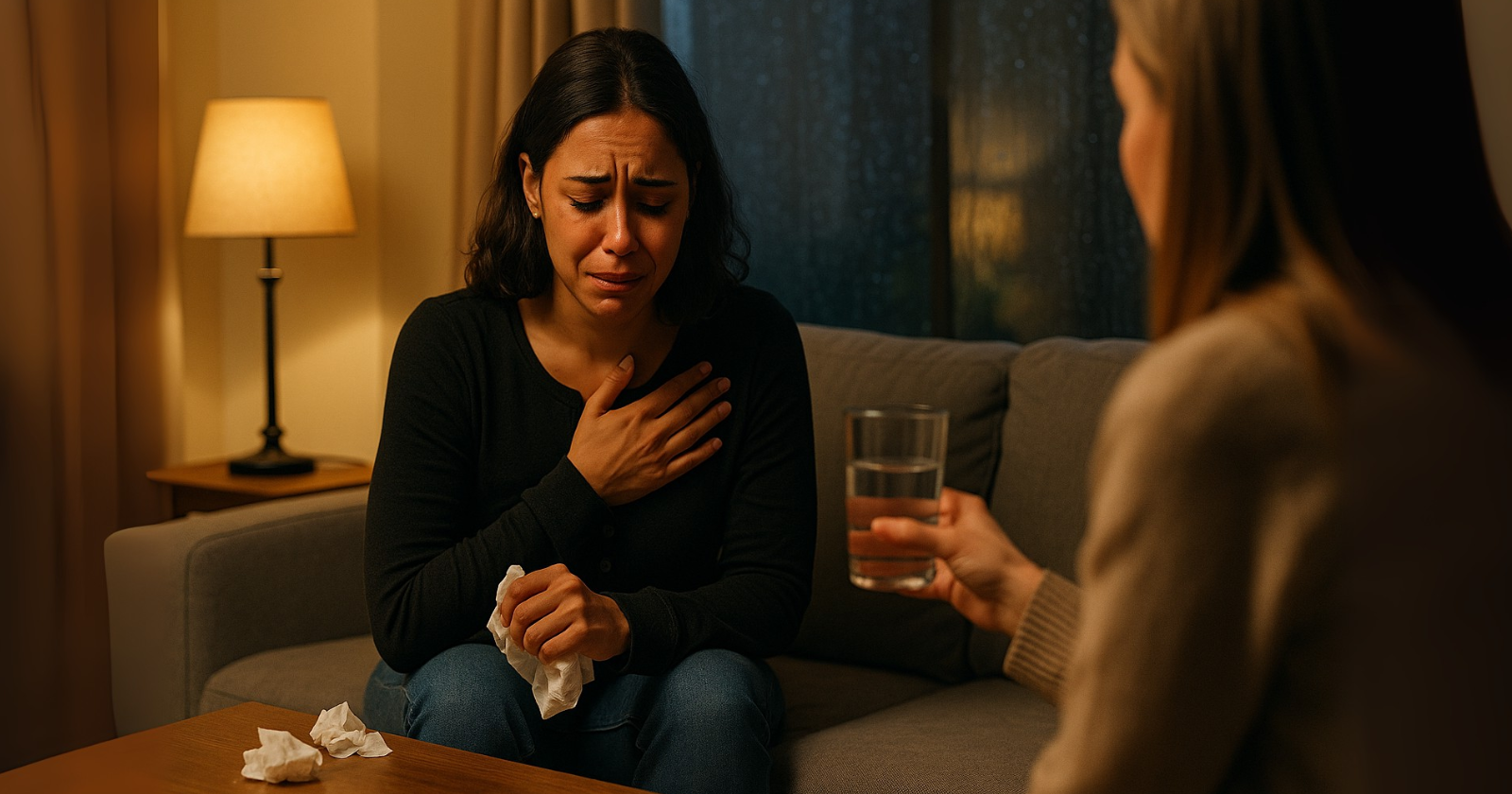Have you ever found yourself saying “I’m sorry” through a veil of tears?
If so, you’re certainly not alone—I’ve been there too.
Apologising for expressing our emotions is something many of us do without even realising it, but why do we feel the need to say sorry when our feelings bubble to the surface?

Well, it’s often a pattern that’s been ingrained in us since childhood.
If this resonates with you, you may have experienced certain things growing up that led you to believe crying was something to be sorry for.
Join me as we unpack these seven common experiences that might just provide the answer.
Understanding our past is the first step towards creating a more self-aware and emotionally healthy future:
1) You grew up in a “stiff upper lip” environment
Did you grow up in a family that valued stoicism over emotional expression?
If so, you might relate to the concept of the ‘stiff upper lip,’ a term often used to describe a culture where emotions are kept under wraps and crying is seen as a sign of weakness.
This environment can instil in us the notion that expressing our feelings, especially through tears, is something to apologize for.
But here’s the thing: Acknowledging and expressing our emotions is a fundamental part of being human.
Just so we’re clear, crying doesn’t make you weak or less capable. If anything, it shows you have the strength to confront your feelings instead of ignoring them.
2) You were often silenced or dismissed
Growing up, did you ever feel like your feelings were discounted or ignored? I know I did.
I remember once, as a child, crying over a broken toy. Instead of consoling me, my parents dismissed my tears and told me to “stop being silly”.
Over time, these dismissive reactions made me feel like my emotions were an inconvenience to others.
In situations like these, it’s common to internalize the message that our feelings are not important enough to be shared or acknowledged. We start believing that we need to apologize whenever we show emotions because they might bother others.
However, your feelings are valid and expressing them is not something you need to apologize for—it’s a part of who you are and it’s what makes you human.
3) You were told that your feelings were seen as a sign of instability
Does the phrase “You’re too sensitive” ring a bell? In many households, emotions are misinterpreted as a sign of instability or even immaturity.
I’ve seen this in my own life: Whenever I showed any strong emotional reaction, comments like “Stop overreacting” or “You’re being too dramatic” were never far behind.
This constant criticism can lead to a deep-seated belief that crying equals instability—and that’s a tough myth to break.
Yet, emotions are a part of our human experience. They’re responses to the world around us, and they’re as natural as breathing.
If you’ve ever felt like you needed to apologize for crying because others might see you as unstable or overly sensitive, remember this: Your emotions are your own and they don’t make you weak or unstable.
4) You were told “big boys/girls don’t cry”

How many of us have heard that phrase growing up, “Big boys don’t cry” or “Big girls don’t cry”?
This is one of the most common phrases used to discourage emotional expression in children; the message it sends is that crying is a sign of being little or childish, and that to grow up means to stop crying.
These words can implant a deep-seated belief that it’s wrong or immature to cry, leading us to suppress our tears and apologize when we can’t hold them back.
Tears are a natural response to emotional experiences, both joyful and painful—regardless of your age.
5) You were taught that crying is socially unacceptable
Did you know that in some cultures, crying in public is seen as a sign of honesty and is actually encouraged?
Yet, in many societies, the act of crying, especially in public, is considered taboo or a sign of weakness—unprofessional and embarrassing.
This social stigma attached to crying can lead us to suppress our tears, especially when we’re around others. We learn to hold back our emotions for fear of judgement or ridicule.
Crying is a natural physiological process because it’s your body’s way of coping with emotions, stress or even just an overload of information.
6) You learned to prioritize other’s comfort over your own feelings
Ever found yourself apologizing for crying because you thought it made others uncomfortable?
We often learn to prioritize others’ comfort over expressing our own feelings. This might stem from growing up in an environment where maintaining harmony was more important than acknowledging individual emotions.
Your feelings matter because they are just as important as anyone else’s comfort.
If you’re feeling sad, it’s okay to cry; if you’re feeling overwhelmed, it’s okay to cry as well.
Your tears are a testament to your experiences and emotions, a sign that you’re processing and dealing with life in your own way.
7) You were conditioned to suppress your emotions
Perhaps the most significant reason why many of us apologize for crying is this: we were conditioned to suppress our emotions.
Growing up, you might have been told directly or indirectly that it’s better to keep your feelings to yourself.
However, there is strength in vulnerability and there is courage in expressing your emotions.
Don’t ever apologize for crying because your tears are an expression of your strength and your humanity—and that’s something to be proud of, never something to apologize for.
Embracing your emotional self
If you’ve recognized yourself in any of these points, you’re not alone. Many of us have been conditioned to apologize for our tears.
Awareness is the first step towards change and now that you’ve identified these patterns, you can start to shift them. It begins with acknowledging your feelings as valid and important.
It won’t be easy to unlearn years of conditioning, but be patient with yourself. Each tear shed without apology is a step towards embracing your emotional self.
Credit: www.experteditor.com.au
Stay ahead with the latest updates!
Join The Podium Media on WhatsApp for real-time news alerts, breaking stories, and exclusive content delivered straight to your phone. Don’t miss a headline — subscribe now!
Chat with Us on WhatsApp







